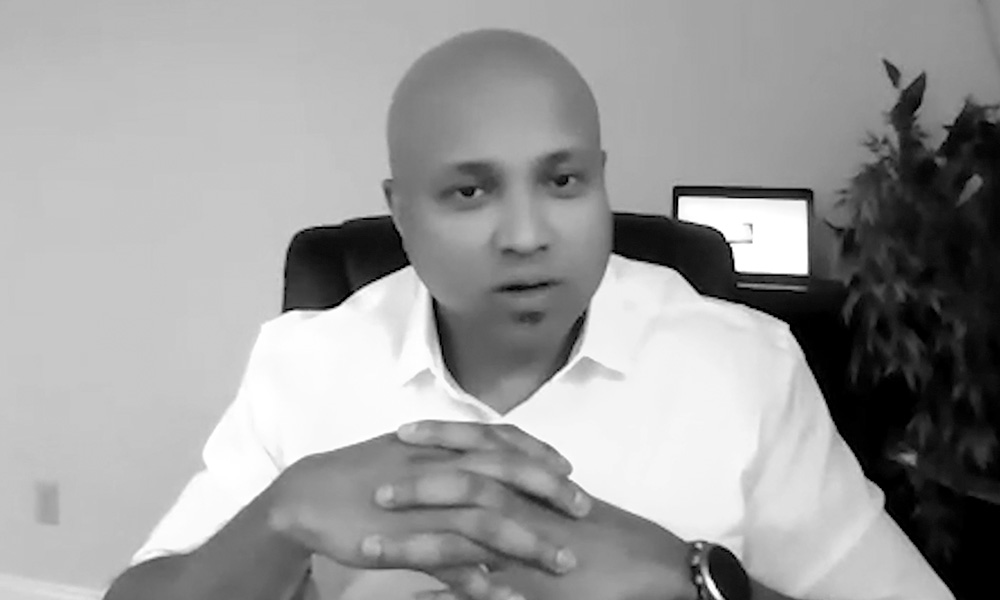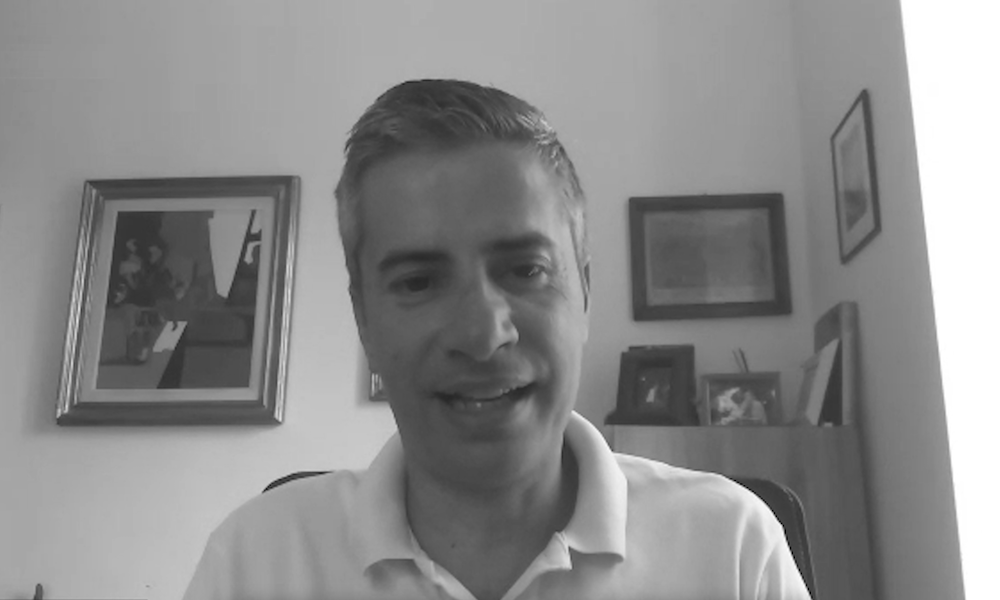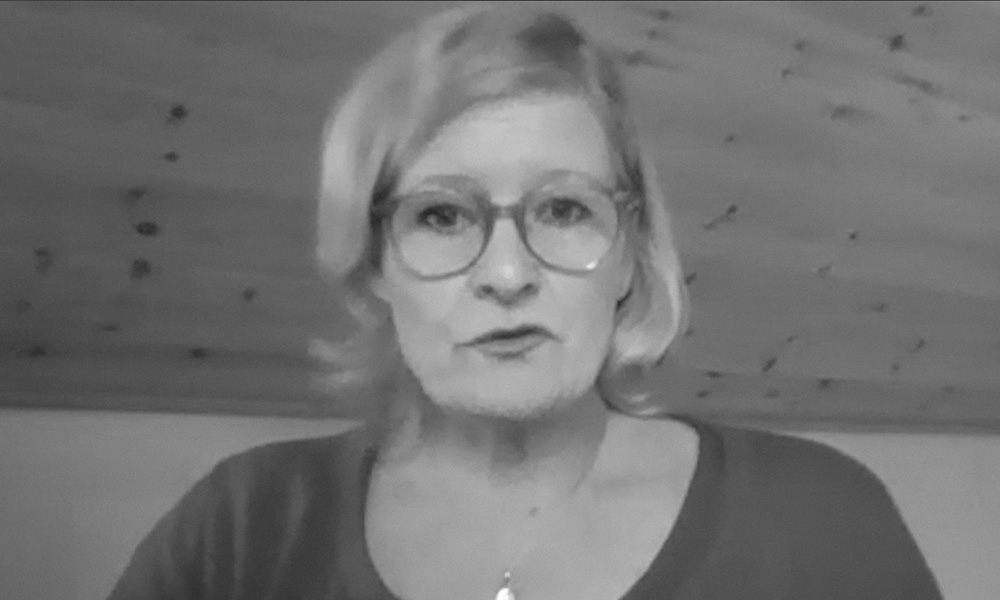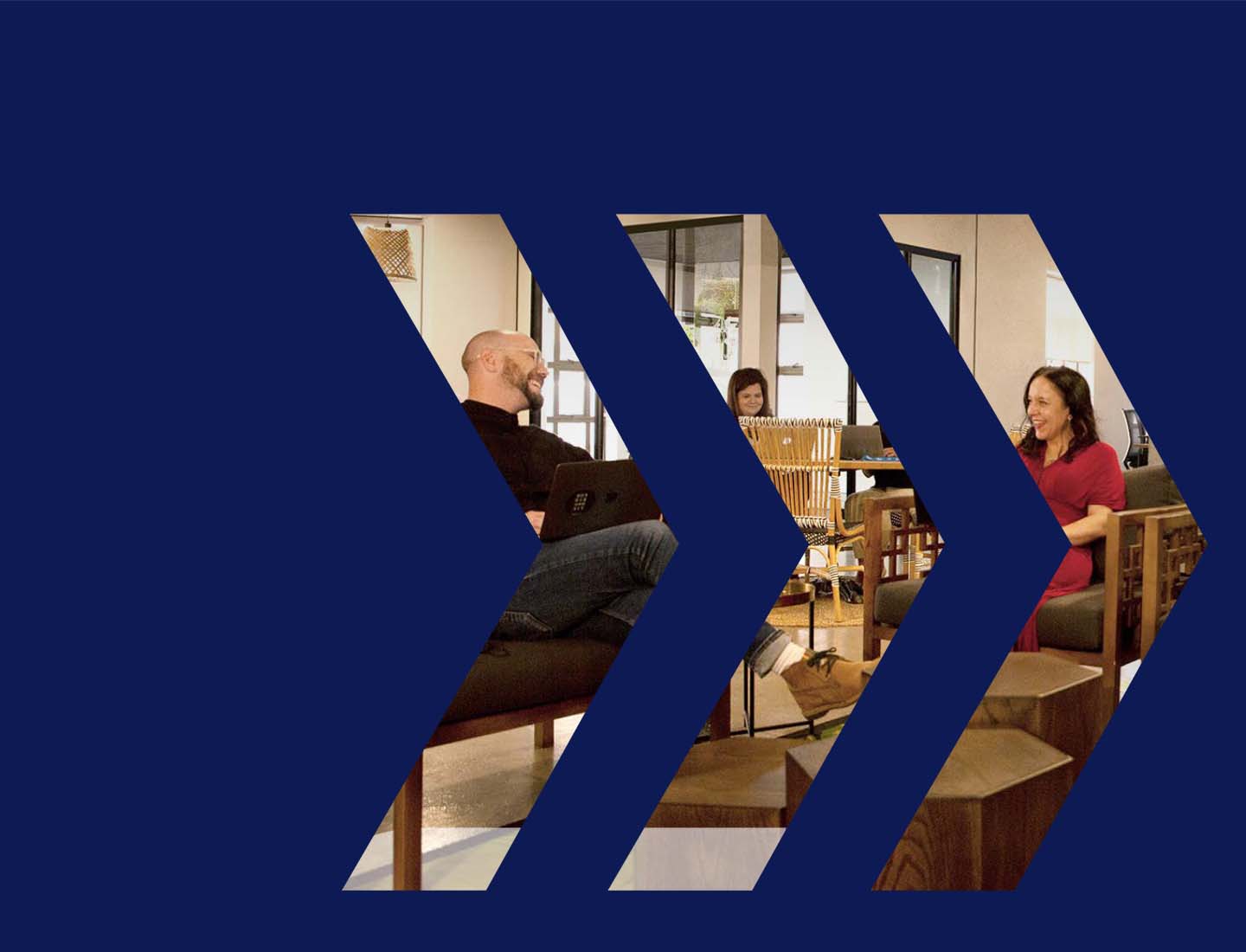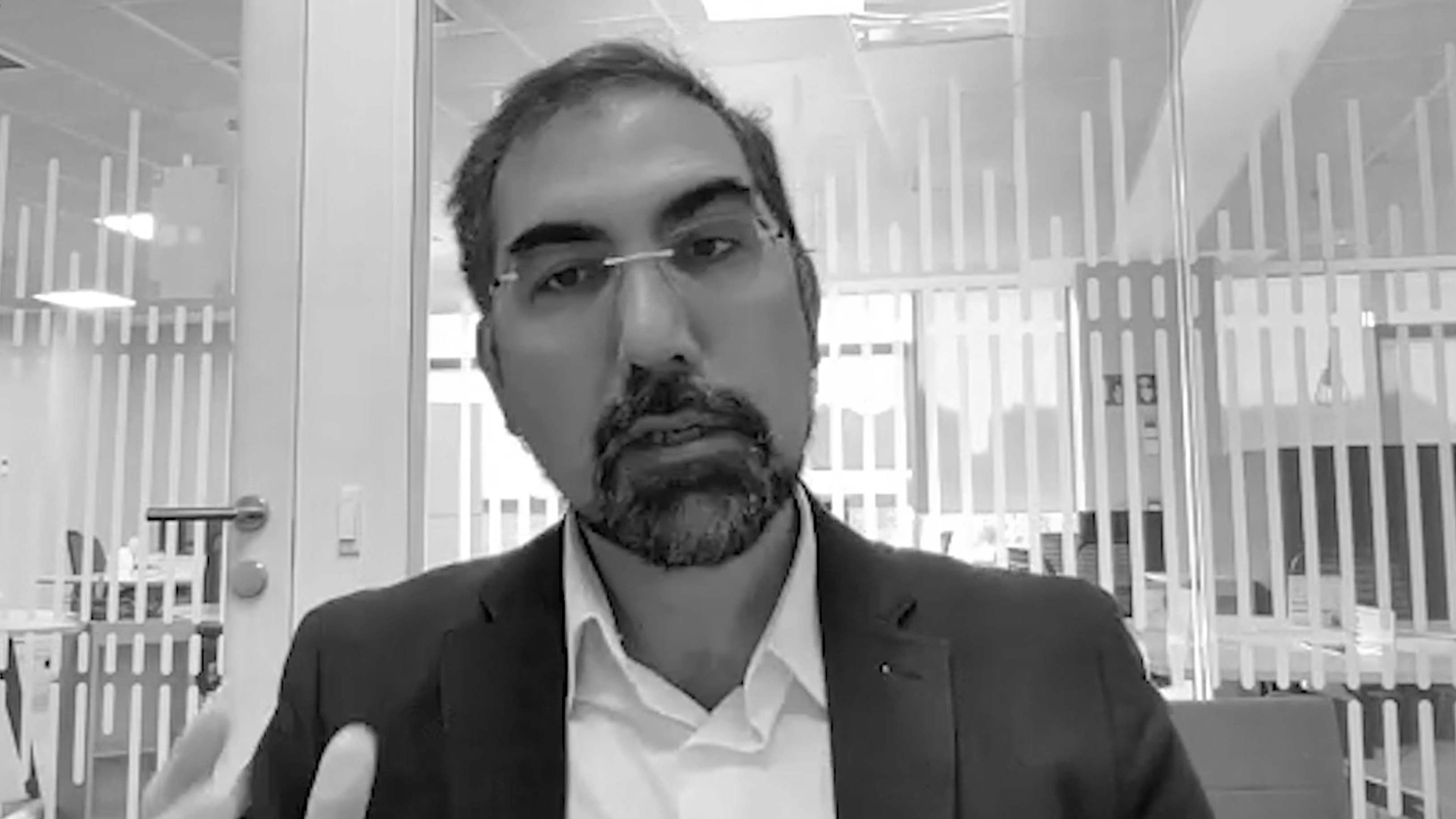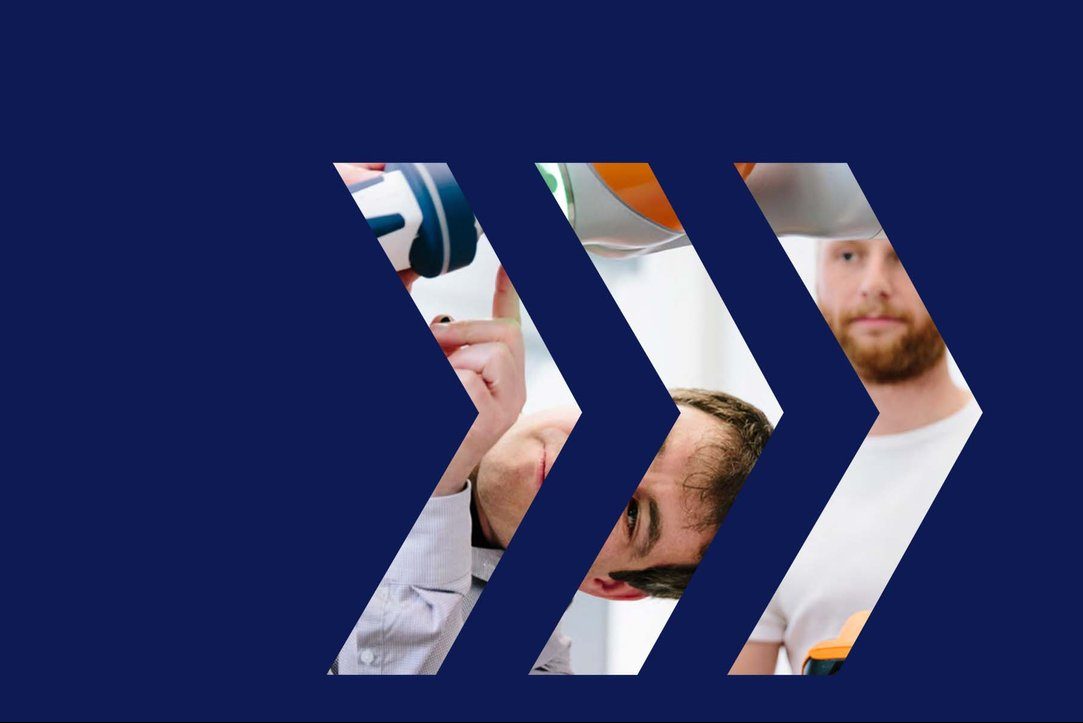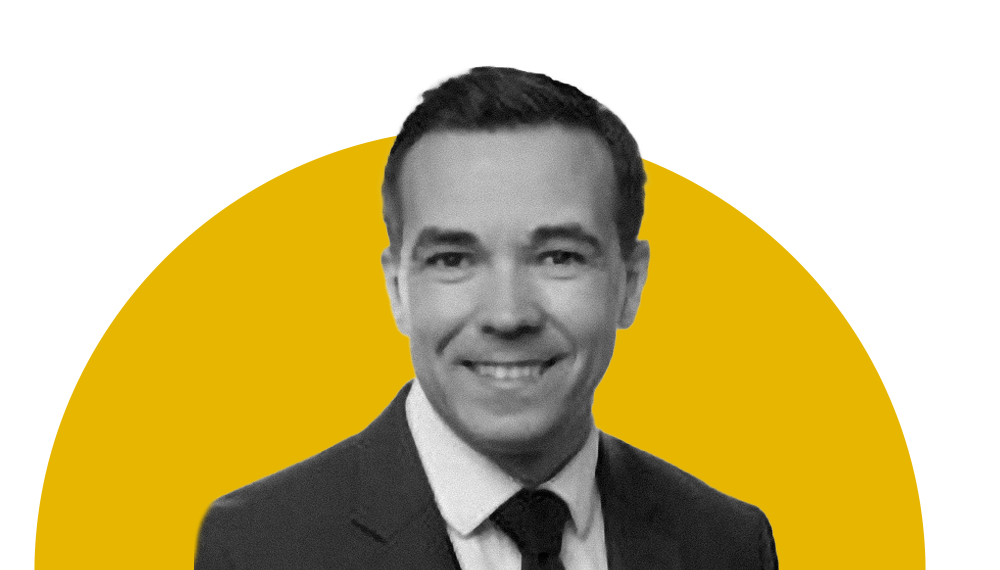40 results
Hybrid Work: Increase Performance & Ensure Employee Retention in 2023
Hybrid work models are now an important decision-making factor for job seekers. The clear majority of employees want a hybrid working model with the flexibility to choose between home and office as needed. The shift to hybrid work presents CEOs and CHROs with new challenges, but this change ultimately increases both organizational performance and employee loyalty.
EXHybrid workingPost-Covid workplaceRecruitmentShaping cultureWhitepaperLeadership First, Location Second
No matter how you feel about it, remote work is here to stay. As leaders, how confident and comfortable you are with this shift will depend on your own experiences, background, and even your seniority. There are very real changes involved in working remotely or in hybrid teams, but there is good news: when we take the time to be intentional, the proper courses of action become clear.
Hybrid workingPost-Covid workplaceShaping cultureStrategyTrustWhy Now is a Moment That Matters
The game has changed. Our role as leaders in this time of unprecedented change is to look outside ourselves – to consider the needs and experiences of our teams, customers and communities. When we do that, we will serve everyone – including ourselves – far better.
Hybrid workingOrganisational designStrategyTeam dynamicA Recipe for Hybrid Working
How have employee relationships and experiences changed over the course of the pandemic? NTT DATA Romania sought to find out, with results showing a wide range of perceptions: some celebrated the new forms of communication and others were dispirited by the decrease in in-office interaction. This leads to a challenging but crucial question: how can we make sure we all feel included in our organizations?
Employee wellbeingEXHybrid workingPost-Covid workplaceShaping cultureHow to Make the New, Hyper-Connected World of Work Work for Everyone
Successful leadership in today’s world of hybrid work requires a reset in how we manage and empower our teams. What we have lost to remote work – those watercooler moments – must be reinstated. Leaders should focus on facilitating social connections and creating a fertile breeding ground for innovation by establishing the structures for employees to network and collaborate across boundaries.
EXHybrid workingOperational agilityShaping cultureStrategyWorking practicesWorkforce Transformation: An Employee Perspective
As we all adjust to post-Covid life, companies are reassessing their workplace processes and procedures – figuring out what’s working, what isn’t, and what the future holds. How can companies establish the foundations that allow them to fully realize employee potential in a hybrid working world?
CXEmployee wellbeingEXHybrid workingWorking practicesNew Work: Is the Great Resignation Finally Making Us Think Differently?
Few companies have fully grasped the reality of today’s New Work challenges. The majority seem content to wait and see – but this complacency could mean the difference between moving ahead and lagging behind. There is a lot at stake, and to make a success of the new world of work leaders need to move on from technology and team leadership and focus on strategy at a higher level.
Hybrid workingShaping cultureStrategyTalent managementWorking practicesDesigning the Future Workplace
The impact of the pandemic and advancing technologies have made designing the future workplace a complex task. As well as focusing on flexibility and comfort, a good workplace design must support collaboration, interaction and innovation – and have connectivity at its heart. The interoperability and opportunities presented by the metaverse may hold one of the keys to overcoming legacy problems and providing your employees with the best possible experience.
ARHybrid workingOrganisational designPost-Covid workplaceShaping cultureVRBetter Communication: Understanding the New Language of Digital Teamwork
For many years now, there has been miscommunication happening in the workplace. It’s not just about age or technology – it’s because we didn’t have a rulebook for our body language in a digital world. One of the crucial cornerstones of this new way of working is ‘communicate carefully’ and, given how central reading and writing comprehension is to our hybrid work lives, reminding ourselves what good communication looks like is critical to being a conscientious colleague. As our workplaces have become increasingly remote, these principles should be at the forefront of all that we do.
Hybrid workingShaping cultureTeam dynamicEffective Change Management for a Resilient Workforce
Change management ensures organizations can implement new ways of working, new technologies and new methodologies – as well as cultural and mindset changes – without losing employee traction and engagement. This vital element of project delivery keeps people and productivity on side while shifting business foundations towards the future.
EXHybrid workingOperational agilityOperational excellenceTeam dynamicWorking practicesThe Hybrid Office: A Work in Progress
As interactions between corporate teams reach the point where virtual is as effective as in-person, the very nature and purpose of the physical office has permanently changed. Hybrid working has proven productive for organizations and rewarding for individuals, and is here to stay. Rather than cling to the past, we must embrace the opportunities of this new post-pandemic business environment – and as such improve speed of decision-making, efficiency of operations and the wellbeing of the entire workforce.
EXHybrid workingOperational agilityPost-Covid workplaceTalent managementConnecting Your Hybrid Workforce
Recent research from NTT showed that over 90% of organizations recognize the value of employee experience to their strategy, or as a crucial strategic differentiator, but just 25% fully agree that the value of EX is understood and embraced across the enterprise. Forward-looking organizations have moved ahead with secure-by-design digital transformation to enable hybrid working – and are reaping significant rewards. But can leaders, managers and employees agree on what the future of work should look like?
ESGEXHybrid workingOrganisational designStrategyWhitepaperGen Z at Work: What Young Professionals Expect From Leaders
As we strive to make sense of the global changes around us and balance our working and personal lives, the expectations of leadership have changed too. As consumers, Gen Zs are particularly known to hold organizations to account, and they’re no different in their expectations for work.
EXHybrid workingPurposeSocial impactTalent managementMind the Gap: Addressing the Current Shortage of Digital Skills to Meet the Needs of the Future
The demand for digital skills is only accelerating as organizations embrace hybrid working. To meet the demands of the future workforce, training – for everyone, no matter where they are in their careers – is essential to ensure the digital skills gap does not hold your organization back.
Hybrid workingInnovationL&DTalent managementHybrid Happiness: Designing the Work Environment of the Future
With organizations currently looking at an increasingly detached workforce and a fierce talent war, a human-centered approach to HR is certainly gaining traction. This is where design thinking comes into play – to remain competitive, companies need to involve people in co-designing an environment where they want to show up.
Design thinkingEXHybrid workingPost-Covid workplaceTeam dynamicLooking Back to Get Ahead
Looking back has always been a crucial part of moving forwards. Understanding the history of the workplace can help business leaders to accelerate their path to success in the future. The best advice for delivering a great employee experience, that will attract and retain the best people, is hidden in our past.
EXHybrid workingShaping cultureTrustEmployee Wellbeing is the Core of Connected Workplaces
Leaders will need to learn to manage wellbeing and the social aspects of team relationships, if they want to successfully build connection and productivity in the workplace of the future.
Employee wellbeingEXHybrid workingPost-Covid workplaceTeam dynamicHow Data Can Enhance the In-Office Employee Experience
In a world where talent is demanding flexibility and employers want connection, data can provide the answer. Using the data you already have available in your office building can help you both to maximize resources, and make the office attractive to employees.
Employee wellbeingEXHybrid workingPost-Covid workplaceResponsible Freedom: Creating the Connected Future Workplace
The pandemic forced businesses and organizations to abandon the physical office and adopt remote working. But with Covid now seemingly behind us, and hybrid practices well-established, is there a danger that without face-to-face interaction, organizations will lose the very thing that keeps them connected?
Hybrid workingPost-Covid workplaceShaping cultureStrategyTalent managementEssential Skills in a Digital Future
Digitally enabled collaboration through hybrid working models now seems critical to all our futures. The question is, are you ready? Alongside technological advances, your employees will need new skills and capabilities to thrive.
EXHybrid workingL&DPost-Covid workplaceTalent managementNurturing Inclusivity and Productivity in a Hybrid World
Businesses must continue to navigate the evolving relationship between employers and employees to ensure a happier and productive workforce. Setting clear expectations and empathizing with individual motivations and priorities encourages transparency, and helps to build a trusting culture in the organization.
Diversity, equity & inclusionEmployee wellbeingHybrid workingTeam dynamicTrustSmart Learning: The Positive Effects of Digital Training on EX
Many things are shaking up the labour market at the moment, with added pressure to stem the flow of the ‘great resignation’. In our current context, employee experience (EX) is more important than ever. Here’s how organisations can use digital training and smart learning to keep employees happy.
EXHybrid workingTalent managementWorking practicesOvercoming Automation Anxiety
From data privacy to employee job security, there are a number of reasons why businesses might be anxious about automation. NTT DATA looks at how it has helped various health insurance companies overcome their fears and live happily (and profitably) alongside automation.
AutomationHybrid workingWorking practicesWhite Paper: Accelerating to an Intelligent Enterprise
What does it take to build an intelligent enterprise? The combination of human intellect and the computer’s proficiency in performing rules-based tasks creates a hybrid ability far better than man or machine can achieve alone. To become a digitally optimised organisation, and sustain it, companies need a clear understanding of what they hope to gain, plus a cohesive plan to bring technology and people together for the maximum benefit.
Breakthrough technologiesHybrid workingShaping cultureWhitepaperThe Beating Heart of Sustainability: People
The world is online, working remotely, clocking long hours from unusual locations. It’s important to remember that the workers that sit behind the screens and keyboards are people, and they need more than just another KPI to keep them connected and engaged
Employee wellbeingEXHybrid workingTalent managementWorking Without Boundaries and the Enterprise of Tomorrow
Agile organisations are defined by how closely they’ve looked at costs, technology and digital innovation and leveraged these to survive in times of uncertainty. Learning from this approach, businesses can reap the benefits of cultural flexibility, process agility, and operational adaptability – allowing employees to work without boundaries while still achieving benchmarks of productivity.
Hybrid workingOperational agilityTalent managementWorking practicesThe Surprisingly Simple Formula for Smart Working
As we enter a new era of work, three key elements can help employee and employer alike respond favourably to the shift: communication, learning and a reimagined workplace. Taken together, these elements offer a model for truly smart working.
EXHybrid workingPost-Covid workplaceTalent managementLeadership in Lockdown
Understanding how best to care for your employees, as we transition into a post-pandemic working environment, stems from a strong company culture. With culture as the foundation, leaders can protect and promote wellbeing, authenticity and effective communication.
Employee wellbeingHybrid workingShaping cultureDesign in a Remote World
Even as we return to the physical office as the effects of the pandemic begin to subside, remote working is here to stay. And there are few disciplines which rely on in-person collaboration for innovation as much as design. By embracing new technologies, we can not only facilitate but also improve ways of working.
Hybrid workingTeam dynamicDistant, but close: a new way to experience spaces in the “liquid” office
The experience of the past months has been an opportunity to reflect on the office of the future. Here's how we imagined it. Translated from Italian
Hybrid workingIoTOperational agilityTeam dynamicYou Have Never Been More Important
In times of crisis, the foundation of leadership and trust is the three Cs: competence, caring and character. It is vital leaders communicate with and support their people. Never has strong leadership been more important.
Employee wellbeingHybrid workingPurposeStrategyPurpose Begins at Home
The pandemic has forced us to reconsider conventional approaches to management as we are united in a common experience, barriers between the professional and personal are blurred, and ultimately we realise our stakeholders are human. There is now huge potential for positive change in both social and economic spaces, if organisations look for the opportunities for good.
Diversity, equity & inclusionHybrid workingOperational agilityPurpose





